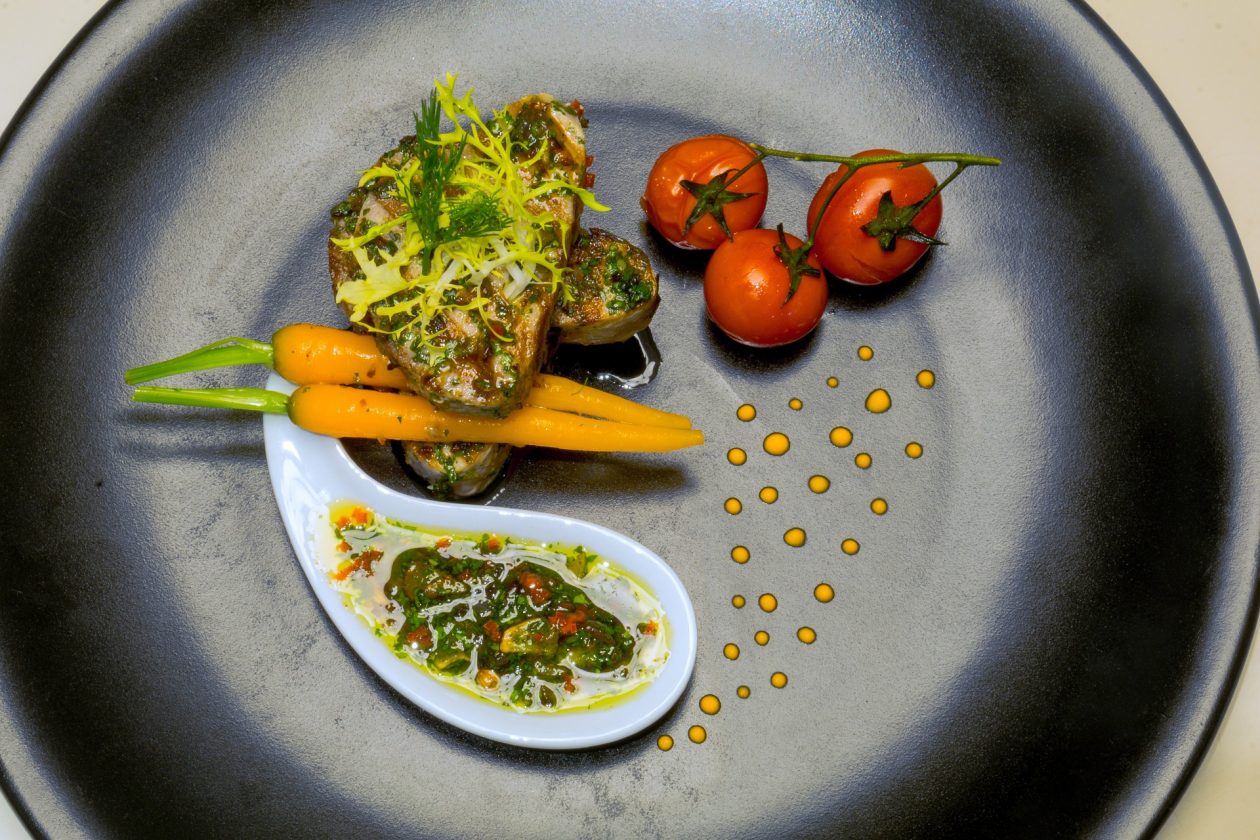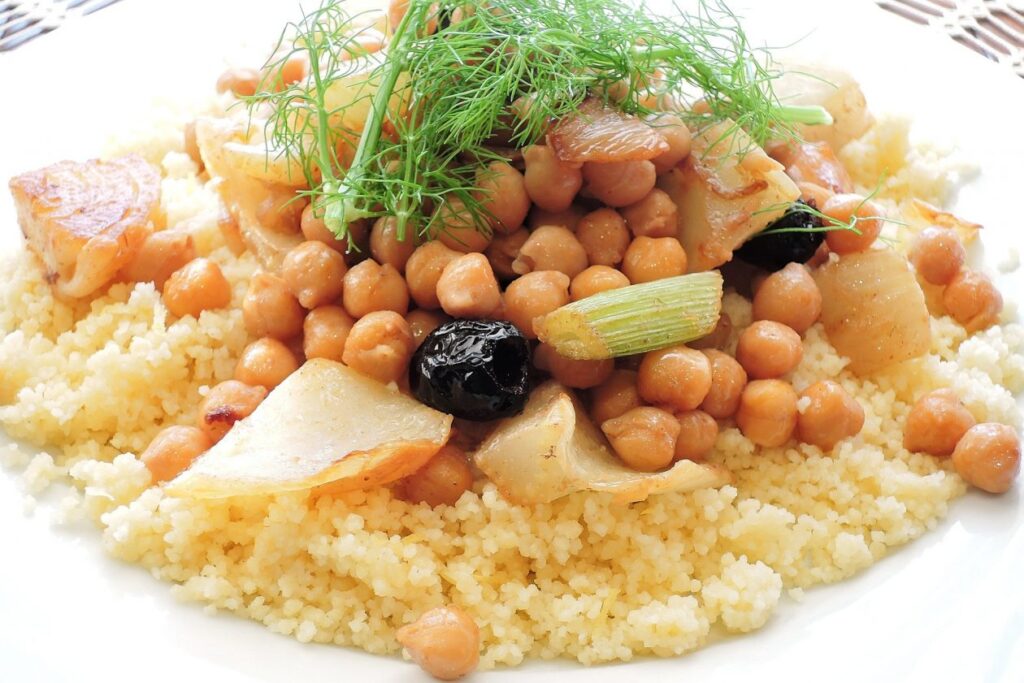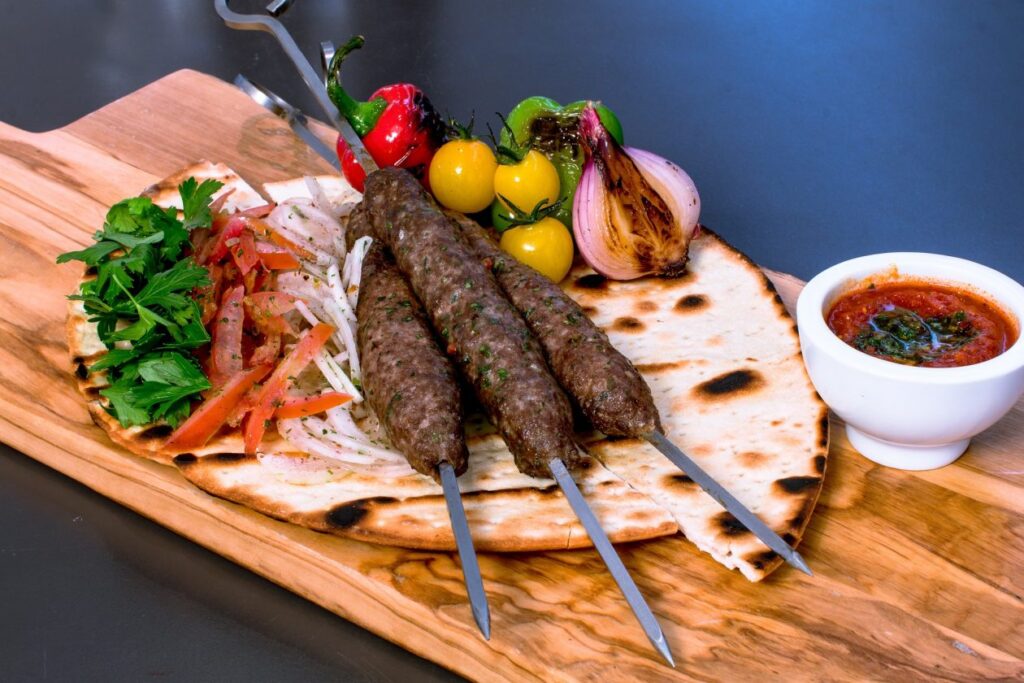Is Halal Food Healthy? Discover the Benefits with These 10 Reasons
 / Discover more like this here: https://stylevitally.com/is-halal-food-healthy/?feed_id=4661&_unique_id=6567f42ab0887
/ Discover more like this here: https://stylevitally.com/is-halal-food-healthy/?feed_id=4661&_unique_id=6567f42ab0887
Introduction: Discover the Benefits of Eating Halal Food
Is Halal food healthy? It has gained more relevance as people's worries about food quality and safety have grown. Halal food is produced and processed by Islamic dietary regulations, making it free of dangerous additives, preservatives, and chemicals. As a result, many people choose Halal food due to its health advantages.
Halal food is not only nutritious but also sustainably and environmentally produced, making it an excellent option for those looking to lessen their environmental impact. With so many advantages, it's understandable why halal food is gaining popularity.
Here is a list of 10 reasons why Halal food is the healthiest choice:
- Sourced from ethical and trustworthy suppliers
- Free from harmful additives and preservatives
- Rich in essential nutrients
- Supports a balanced and diverse diet
- Promotes better digestion
- Supports a healthy immune system
- Low in unhealthy fats and cholesterol
- Supports weight management
- Reduced risk of chronic illnesses
- Encourages a more sustainable and environmentally friendly lifestyle.
We will examine the answer to the question "Is Halal Food Healthy?" and learn about the many advantages of Halal food in this article. To give you a thorough overview of the numerous benefits of eating Halal food, we'll examine its health, nutritional, and environmental advantages. So, if you're prepared to learn the answer to the question "Is Halal food healthy?" and why it's the healthiest option, continue reading!
What is Halal Food?
Halal food refers to the dietary regulations established by Islamic law, which specify which foods Muslims are allowed to eat. Halal is an Arabic word that means "permissible" or "lawful." Halal refers to any food that Islamic law deems appropriate for consumption in the context of food.
According to Islamic law, all foods, including meat, must be prepared and processed in a particular way to guarantee their purity and wholesomeness. The animal must be killed in the name of Allah, and the blood must be completely drained from the body before the meat can be deemed halal. The animal must also be raised and killed humanely without suffering.
Islamic law also forbids the consumption of certain foods like alcohol and pork in addition to these restrictions on meat. Halal foods must also be devoid of any ingredients derived from forbidden sources, such as non-halal gelatin made from animal bones.
The rules for halal food include what can be eaten and how it should be prepared and processed. Any equipment used to produce halal foods, for instance, must be free of contamination from non-halal goods.
Halal food is growing in popularity among people of all backgrounds looking for healthier and more moral food options, not just among Muslims. It's getting simpler to find healthy options in supermarkets and restaurants thanks to the rising demand for halal food products.
In conclusion, the term "halal food" refers to the dietary regulations established by Islamic law, which include prescriptions for how food should be prepared and processed to ensure that it is wholesome and pure. By adhering to these rules, Muslims can promote a healthy lifestyle while ensuring that their food is consistent with their beliefs and values.
The Source of Halal Food: Knowing Where Your Food Comes From
Knowing where your food comes from is one of the most crucial components of halal food. You can be sure that Halal food has been prepared and processed by Islamic dietary laws, which means it is devoid of dangerous chemicals, artificial additives, and preservatives.
Halal food can be tracked from farm to table and is devoid of harmful ingredients. This implies that you can precisely trace the origins of your food and learn how it was produced. Given that Halal food is produced using sustainable and environmentally friendly practices, this is especially crucial for those who care about the environment.
The following are some advantages of understanding the origin of your halal food:
- Tracing the Origin of Your Food: Know exactly where and how your food was produced by following its production trail. When it comes to food, it's essential to know precisely where and how it was built. Not only does this information help us make informed decisions about what we eat, but it also helps us make choices that align with our values and beliefs. This is why many people follow the production trail of their food, to understand better the journey it took from farm to plate.
- They were eating Safely: Absence of harmful additives. Knows that there are no toxic chemicals, artificial additives, or preservatives in your food. Halal food is a safe choice for those looking to avoid harmful additives and toxic chemicals in their food. Unlike many non-halal foods, halal food is free from artificial additives, preservatives, and toxic chemicals, ensuring that consumers can eat safely and healthily. By choosing halal food, individuals can be confident that they are avoiding potential health risks associated with these additives and can enjoy their meals without worry. With its strict adherence to Islamic dietary laws, halal food is a safe, healthy, and delicious option for anyone looking to make informed choices about their food.
- Environmentally friendly: Encourage ecologically responsible and sustainable food production. Regarding what we eat, it's essential to be aware of the substances and additives in our food. Harmful additives, such as artificial colors, preservatives, and alcohol, can negatively impact our health. Halal food is free from these dangerous additives, ensuring that consumers can enjoy their meals without worrying about the potential health risks associated with these substances. By choosing halal food, individuals can be confident that they are eating safe, healthy, and pure food that adheres to strict dietary laws.
- High-quality ingredients: From farm to table, your food is made with only the finest ingredients. Halal food is known for its high-quality ingredients and strict adherence to Islamic dietary laws. From farm to table, halal food is made with only the finest ingredients, ensuring that consumers get the best possible nutrition. These ingredients are carefully selected to meet the highest quality, purity, and freshness standards. Whether it's fresh fruits and vegetables, lean proteins, or whole grains, halal food is made with only the best ingredients, making it an excellent choice for anyone looking to eat healthy and delicious food.
By selecting halal food, you can be sure of the food's quality and safety while also knowing exactly where and how it was made. As a result, those who want to improve their health and the environment should consider eating Halal food.
Health Benefits of Halal Food: Making the Right Choice for Your Health

The food you eat is essential to your health. You can be sure that you are making the best decision for your health by selecting Halal food. Among the many advantages of eating halal food are the following:
- No harmful additives: Halal food is free of artificial additives, preservatives, and toxic chemicals that can harm your health.
- Improved digestion: Halal food is frequently simpler to digest, making it an excellent option for people with digestive problems.
- Reduced risk of heart disease: Since Halal food frequently contains fewer unhealthy fats and additives, eating it can lower your risk of developing heart disease.
- Halal Food for Weight Loss: Halal food is an excellent option because it frequently has fewer calories and thus helps with weight loss.
Switching to Halal food can improve your health, enabling you to live healthier and feel better. Halal food can increase your immunity, reduce your risk of heart disease, or improve your digestion. So, think about switching to Halal food immediately to improve your health!
Nutritional Benefits of Halal Food: Fueling Your Body with Essential Nutrients

Halal food is not only rich in numerous health advantages, but it is also very nourishing. By choosing Halal food, you can be confident that you are providing your body with all the vital nutrients it needs to stay healthy and strong. Just a few of the leading nutritional advantages of halal food are listed here:
- Rich in protein: Halal food frequently contains a lot of protein, making it an excellent option for people who want to develop and repair muscle tissue.
- An abundance of Vital Nutrients: Vitamins and minerals are abundant in halal food, including vitamin C, calcium, and iron, which are vital for good health.
- Digestive Health and Heart Disease Prevention: Halal food is a good source of fiber, which is crucial for keeping the digestive system in good shape and preventing heart disease.
- Low in bad fats: Halal food is frequently lower in bad fats, making it an excellent option for people trying to maintain a healthy weight.
- No harmful additives: Halal food is free of additives and preservatives harmful to your health.
You can be sure that you are giving your body the vital nutrients it needs to thrive by choosing Halal food. Therefore, think about switching to Halal food immediately if you want to provide your body with all the vital vitamins, minerals, and nutrients it requires.
Environmental Benefits of Halal Food: Making a Difference for the Planet

Halal food positively affects the environment and has many health and nutritional advantages. You can help the environment and ensure future generations have a sustainable future by choosing Halal food. Here are just a few of the significant environmental benefits of eating halal food:
- Animal welfare: Halal food demands that animals be treated humanely and respectfully, minimizing unfavorable environmental effects.
- Halal food is free of harmful additives and preservatives, reducing waste disposed of in landfills.
- Halal food frequently helps local farmers, lowering the carbon footprint associated with shipping food long distances. Supports local farmers
- Halal food encourages sustainable agricultural methods, assisting in preserving the environment for future generations.
- The use of harmful chemicals is reduced because halal food is produced without the use of fertilizers and pesticides, which hurt the environment.
You can positively affect the environment and contribute to a sustainable future by choosing Halal food. So, if you want to help the environment, think about switching to Halal food immediately!
Risks of Halal Food
Halal food carries some risks, just like any other type of food. For instance, some halal foods, like fried foods, may contain many calories and saturated fat, raising the risk of obesity and heart disease. Furthermore, some halal foods might have high sodium content, which increases the risk of high blood pressure. It's critical to be knowledgeable about these risks and make educated decisions about your diet.
The fact that not all halal food is created equal is another risk to take into account. Fares are not always considered healthy just because they bear the halal label. It's critical to read ingredient lists on food labels and be aware of what you're putting in your body.
Conclusion: The Healthiest Choice for Your Body and the Planet
In conclusion, halal food is a unique and advantageous food with many positive effects on human health and the environment. Halal food is the ideal option for anyone looking to improve their health. It positively impacts the environment because of its carefully sourced ingredients and lack of harmful additives.
Halal food has everything you need, whether you want to give your body the nutrients it needs, lessen your carbon footprint, or support regional farmers. So, consider switching to Halal food immediately if you're looking for a healthier and more environmentally friendly option.
You can eat delicious and healthful meals while also improving the world by selecting Halal food. What are you still holding out for? Take advantage of the many advantages of halal food right away!
https://stylevitally.com/is-halal-food-healthy/?feed_id=4661&_unique_id=6567f42ab0887
Comments
Post a Comment